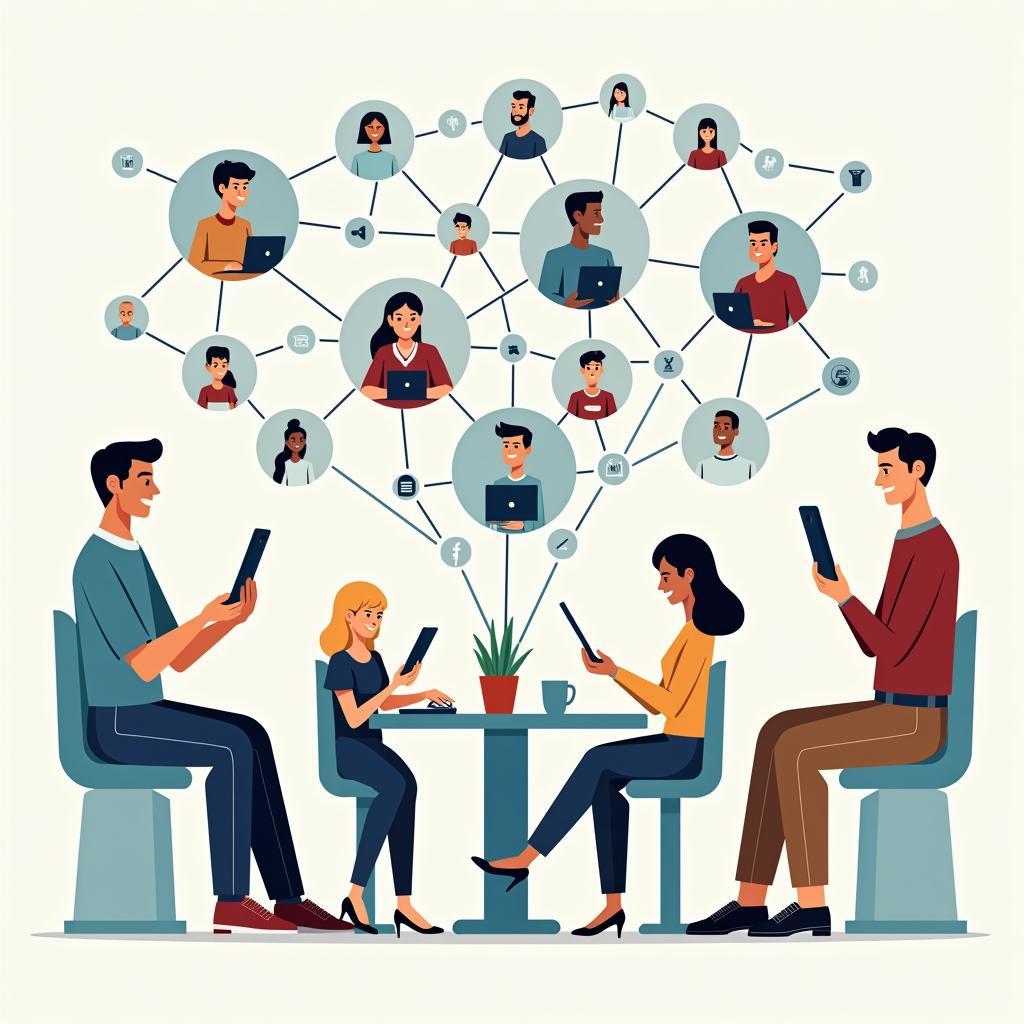Technology’s role in social equality has become a frequent topic in IELTS Writing Task 2, appearing in various forms across recent test papers. Based on analysis of past exams and current trends, this theme is likely to remain relevant for future tests. Let’s examine a common question format on this topic and analyze sample responses across different band scores.
Question Analysis
Some people believe that modern technology has increased social equality, while others argue it has done the opposite. Discuss both views and give your own opinion.
This question requires candidates to:
- Examine both positive and negative impacts of technology on social equality
- Present balanced arguments for both perspectives
- Provide a clear personal stance with supporting evidence

Sample Essay 1 (Band 8.5)
The relationship between technological advancement and social equality has sparked considerable debate, with valid arguments on both sides. While I believe technology has predominantly enhanced social equality, it’s crucial to examine both perspectives.
Those who support technology’s positive impact on social equality highlight several compelling points. Digital platforms have democratized access to education through massive open online courses and educational resources, enabling people from disadvantaged backgrounds to access quality learning materials. Similarly, social media and communication technologies have given marginalized voices a platform to raise awareness about inequality and mobilize support for social justice causes. The impact of AI on social inclusion has further demonstrated how technological innovations can break down traditional barriers to participation in society.
However, critics argue that technology has exacerbated social divisions. The digital divide between those who can afford and effectively use modern technology and those who cannot has created new forms of inequality. Furthermore, automation and artificial intelligence have displaced many low-skilled workers, potentially widening the economic gap between social classes. The impact of technology on social equity shows that without proper management, technological advancement can reinforce existing social disparities.
In my view, while technology has created some new challenges, its overall impact on social equality has been positive. The key lies in how we implement and regulate technological innovations to ensure their benefits reach all sections of society. Governments and organizations must work to bridge the digital divide through initiatives like public internet access and digital literacy programs.
Sample Essay 2 (Band 6.5)
Modern technology has changed our society in many ways. Some people think it makes society more equal, but others disagree. I will discuss both sides and give my opinion.
On the positive side, technology helps people get more opportunities. Poor people can now learn online for free and find jobs on the internet. Also, social media lets everyone share their ideas and connect with others. This means more people can participate in society than before.
However, there are some problems too. Not everyone can buy expensive devices or have good internet. This creates a gap between rich and poor people. Also, some jobs are being replaced by machines, which makes some people lose their work and become poorer.
I think technology mostly helps make society more equal, but we need to solve these problems. Governments should help poor people get access to technology and train people for new jobs. This way, everyone can benefit from technology.
The effects of urbanization on social equality similarly shows how development can both help and hurt different social groups.
Key Vocabulary
- Digital divide (n) /ˈdɪdʒɪtəl dɪˈvaɪd/ – The gap between those who have access to technology and those who don’t
- Social mobility (n) /ˈsəʊʃəl məʊˈbɪləti/ – The ability to move between social classes
- Democratize (v) /dɪˈmɒkrətaɪz/ – Make something accessible to everyone
- Marginalized (adj) /ˈmɑːdʒɪnəlaɪzd/ – Treated as insignificant or peripheral
- Exacerbate (v) /ɪɡˈzæsəbeɪt/ – Make worse
High-scoring Sentence Structures
- Complex Conditional: “Had technology been properly regulated from the outset, many of the current inequalities might have been prevented.”
- Concession Structure: “While technology has created some new challenges, its overall impact on social equality has been positive.”
- Parallel Structure: “Technology has not only democratized education but has also revolutionized communication.”
Remember to practice writing your own response and share it in the comments section for feedback. Focus on incorporating the vocabulary and sentence structures discussed above while maintaining a clear argument structure.